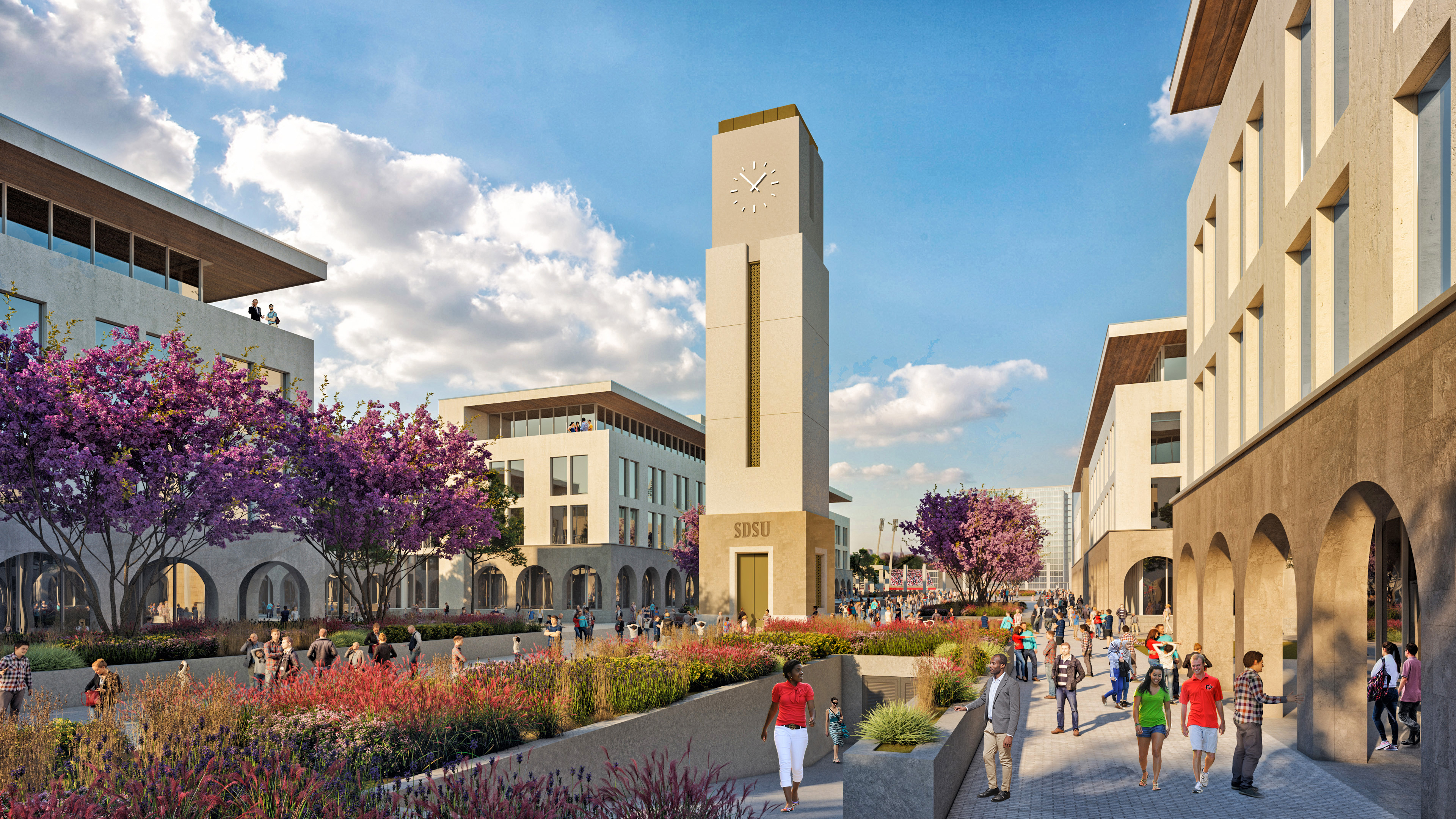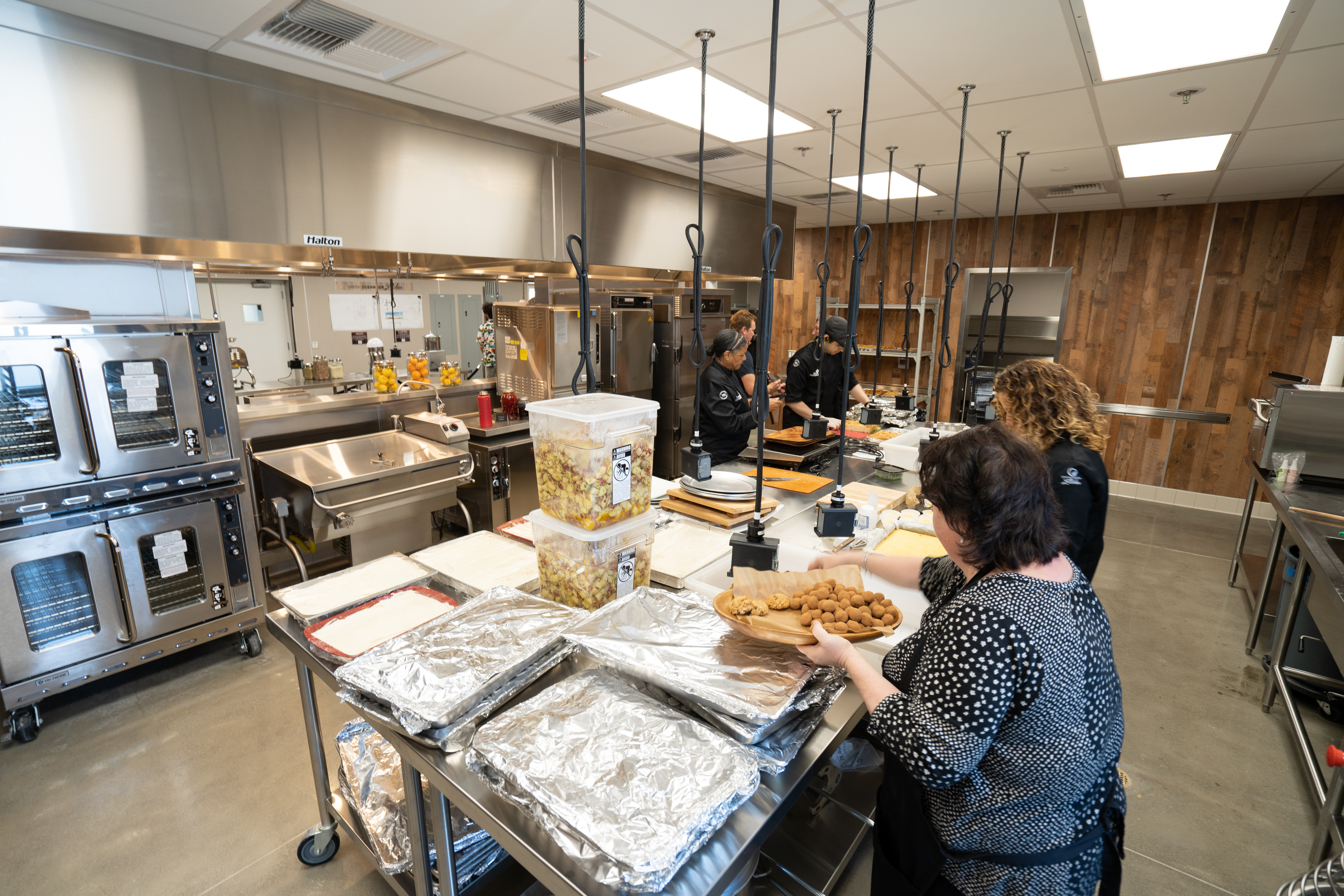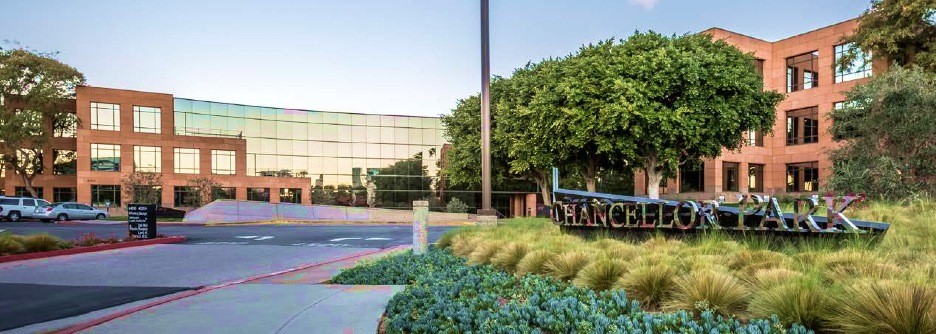Daily Business Report-Nov. 9, 2018
Rendering of the campus mall in the proposed SDSU Innovation District (Credit: SDSU)
The four big promises SDSU
must now deliver in Mission Valley
Voice of San Diego
San Diego State University and the city of San Diego are about to engage in an unprecedented negotiation. The city will have to hand over the most valuable piece of under-utilized land it owns, and SDSU will have to make good on what became an ambitious list of promises in Measure G.
Scott Lewis and Ry Rivard collected the four biggest promises SDSU and its supporters have made over the last year. The university has talked about what it would pay for the land, how soon it would begin building and how it would pull off a new river park.
The promises are big, and they’re not going to be easy to pull off.
_____________________
Omar Passons joins county’s
Health and Human Services Agency

Omar Passons couldn’t win a seat on the San Diego County Board of Supervisors, so he’s joining the county bureaucracy.
Passons, an experienced health care policy and land use attorney, is joining the County of San Diego’s Health and Human Services Agency today as director of integrative services. In that role he will work to ensure seamless service delivery across HHSA’s health, housing and social services and work in collaboration with the county’s other departments outside of the agency.
Passons will focus on building upon the agency’s innovative integration of county services to serve individuals experiencing homelessness. He will also work closely with the county’s Housing and Community Development Services in the area of affordable housing. These efforts are critical aspects of Live Well San Diego, the county’s vision for healthy, safe and thriving communities.
Passons was previously the vice president of community development and policy for the Jacobs Center for Neighborhood Innovation, where he led strategy for economic and workforce development efforts for the region. He recently ran unsuccessfully for a seat on the county Board of Supervisors.
For over 12 years, Passons practiced law in San Diego as a land use construction attorney. He also has experience as a health policy analyst with the United States Department of Health and Human Services, Office of Disease Prevention and Health Promotion in Washington, D.C.
_____________________
San Diego County home prices cooled in October
Despite the competition in the resale home market, San Diego County saw a slowdown from rising prices in October, according to housing statistics compiled through the San Diego Multiple Listing Service by the Greater San Diego Association of Realtors.
Single-family median home prices last month leveled off at $645,000, slighly lower than September, while prices of condominiums and townhomes dipped by 2.7 percent ($418,000) in October. That’s not to downplay the fact that median home prices have still increased by more than 6 percent over the past year.
Sales of single-family homes increased more than 2 percent month over month, but are down by nearly 17 percent from a year ago. Attached properties saw a nearly 9 percent increase home sales in October compared to September, yet are 15 percent lower than October of last year. For the year to date, sales of previously owned homes are off by 9 percent compared to 2017.
“The temperature of home prices seems to be cooling, which may lead to a period of calm for the rest of the year,” said SDAR President Steve Fraioli. “However, the strength of the economy and the strong job market remains great news for buyers and industries related to real estate.”
In October, the ZIP codes in San Diego County with the most single-family home sales were:
• 92065 (Ramona) with 43
• 92057 (Oceanside North), 92064 (Poway) and 92128 (Ranch Bernardo East), each with 40
• 92071 (Santee) and 92115 (College), both with 39
• 91977 (Spring Valley) with 38
• 92028 (Fallbrook) with 37
The most expensive single-family property sold in October in San Diego County was a 13,000-square-foot Rancho Santa Fe estate on more than five acres, built in 2003, with 7 bedrooms, 11 baths, and a sale price of $13.3 million.
Click here for a detailed look at the numbers
_____________________
Democratic takeover at City Hall
a big test for Mayor Faulconer
In one of San Diego’s biggest political shakeups ever, City Council Democrats obtained a mayoral veto-proof supermajority on Tuesday that may give Republican Mayor Kevin Faulconer fits as he drafts budgets, negotiates employee benefits and a sale of the Mission Valley stadium site to San Diego State University, and tries to drum up council support for a special election to expand the convention center.
Starting in December, six united Democrats can change or derail any Faulconer proposal and override any Faulconer veto. Will they? TBD.
_____________________
USD’s MBA program leaps up
in Bloomberg Businessweek ranking
The University of San Diego MBA is among the top 100 programs in the United States, according to Bloomberg Businessweek. USD’s MBA program leaped an impressive twenty-one spots from last year, ranking #60 in the nation, #7 in California, and #1 in San Diego by one of the nation’s preeminent business publications.
The University of San Diego MBA performed particularly well in entrepreneurship, quality of student learning and networking, ranking #32 in the U.S. for entrepreneurship, #49 for student learning and #51 for networking.
USD’s MBA program offers coursework co-designed with corporate partners to provide the expertise employers are looking for in their executive hires. The program also offers small class sizes, consulting projects with major organizations around the world and a cohort format to help students make lifelong professional and personal connections with faculty and classmates.
_____________________
Veterans at Grossmont and Cuyamaca
colleges to see boost in student services
The Grossmont-Cuyamaca Community College District has good news about expanded services and new facilities in store for its nearly 1,700 student veterans. The two colleges have each secured $200,000 in state grants to expand outreach and services to veterans and their dependents. In addition, both colleges have plans in place to nearly triple the size of their veterans resource centers, with construction at Cuyamaca College set to begin next spring.
The Grossmont College grant will pay for a veteran program specialist tasked with providing operational support for the Veterans Resource Center and coordinating events and activities to help keep veterans on track and involved. In addition, Grossmont is in the planning stages of building a new, nearly 3,400-square-foot Veterans Resource Center with a large computer lab and quiet commons, a study center, a meeting room, counselors offices, a lounge and an outdoor patio.
At Cuyamaca College, the grant is paying for a part-time Veterans Resource Center coordinator, several new computers, a food pantry for veterans and their family, an expanded textbook library, and an “academic survival kit” complete with a flash drive, calculator, stationery, and pens, pencils and highlighters. In addition, Cuyamaca College is expanding its Veterans Resource Center from 870 to 2,487 square feet, with construction set to begin this spring.
_____________________
Illumina partners with Blue Cross Blue Shield Association
Blue Cross Blue Shield Association (BCBSA) and Illumina Inc. announced an important partnership to determine the availability and clinical understanding of DNA sequencing technologies, genetic testing and precision medicine across the country in an effort to provide patients with expanded access to personalized m Leveraging their unique data capabilities, BCBSA and Illumina plan to analyze the use and availability of DNA sequencing and genomic testing across the country to identify areas where people can access these services and areas where there is limited access. As part of this collaboration, the two organizations will produce a report and offer precision medicine educational programs to health care providers in areas where people would most benefit from this technology.
_____________________
Best-selling author to speak
at Women’s Museum of California

The Women’s Museum of California is delighted to announce that Bestselling historical fiction author Jill G. Hall will offer a book talk Dec. 9 about how photographs have influenced her writing. It will be held from 4:30 to 5:30 p.m. at the Women’s Museum of California at Liberty Station in Point Loma.
Hall’s debut novel “The Black Velvet Coat” was a finalist in the International Book Awards and a No. 1 Amazon bestseller. Her most recent dual-timeline historical novel “The Silver Shoes” was recently selected as a Distinguished Favorite in the Big New York City Book Awards. The latter is a story that follows two women bound by a pair of vintage dance shoes worn by their original owner, a fallen debutant who tries to save her family from post-stock market crash ruin by becoming a burlesque dancer.
The Silver Shoes also appears in “The Black Velvet Coat,” the story of a struggling San Francisco artist who discovers a vintage coat that unlocks secrets and reignites her creativity.
Hall co-curates the exhibitions for San Diego Writers, Ink and chairs the Creative Catalyst Program for the San Diego Foundation.
_____________________
Study: San Diego poised to benefit
from Asia-focused military buildup
Times of San Diego
San Diego’s economy is poised to gain from a military buildup focused on the Asia-Pacific region, with the number of Navy ships based here reaching a record 62 in 2019.
That was the forecast in the San Diego Military Advisory Council’s annual report Thursday on the impact of the Navy, Marines and Coast Guard on the local economy.
“The coming years should be positive for the impact of defense spending on our region,” said economist Lynn Reaser, adding that this spending will act as “significant buffer” if problems develop in other parts of the local economy.
The 10th annual report by Reaser’s Fermanian Business & Economic Institute at Point Loma Nazarene University measured $26 billion in direct spending, 340,000 jobs and an overall $50 billion economic impact from the military.
Reaser said the steady growth in Navy ships is especially significant. The number has increased from 49 in 2015 to 57 this year and will reach 62 in 2019.
She said San Diego now boasts a “military mega cluster” based on shipbuilding, military technology, health care, cybersecurity, construction and military-related travel that accounts for almost a quarter of the local economy.
“You could not replace San Diego’s contribution to our defense anywhere else in the country,” she said.




